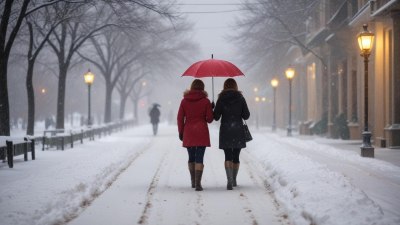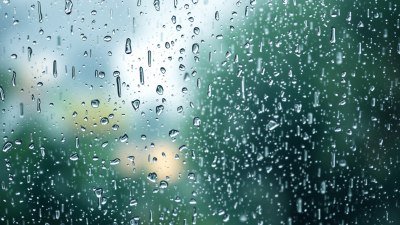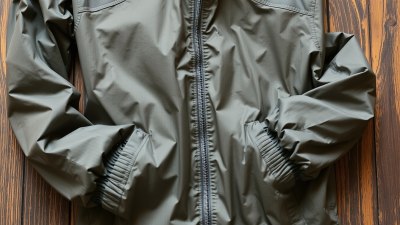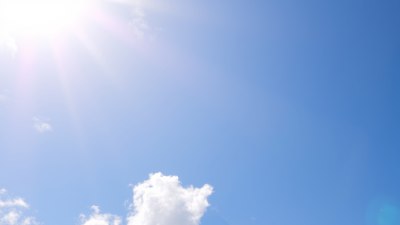How Weather Impacts the Way We Celebrate Holidays and Gatherings
Explore the influence of weather on holiday celebrations, traditions, and gatherings around the world.

This image was created with the assistance of Freepik
Weather plays a pivotal role in shaping how we celebrate holidays and gatherings, influencing everything from the food we serve to the activities we engage in. In different climates, people adapt their traditions to suit the available weather, creating unique celebrations that reflect local environmental conditions. This article explores how various weather patterns affect holiday celebrations across cultures.
The Connection Between Weather and Holidays
Throughout history, humans have had to adapt their festivities to the changing seasons and unpredictable weather. In agricultural societies, for instance, many holidays revolve around harvest times and the climate necessary for crops to flourish. Festivals like Thanksgiving in the United States celebrate the bounty of harvest, while the Mid-Autumn Festival in China honors the season's harvest moon. These celebrations reflect the local climate and its impact on agriculture.
Winter Holidays in Cold Climates
In regions where winter brings cold weather and snow, holiday celebrations often incorporate winter sports and activities. For example, in countries like Canada and northern Europe, Christmas traditions include ice skating, building snowmen, and even sleigh rides. Decorations may feature symbols of winter, such as snowflakes and icicles, while traditional dishes often include hearty meals that provide warmth.
In contrast, places with milder or no snow often create festive environments through other means, like vibrant lights and outdoor gatherings. For instance, in southern California, Christmas celebrations can happen outdoors, with barbecues or beach parties replacing the typical snowy ambience of other regions.
Summer Holidays and Warm Weather Gatherings
When warm weather descends, so does an entirely different approach to holiday celebrations. In many cultures, summer holidays are often centered around outdoor activities. Memorial Day and the Fourth of July in the United States witness countless barbecues, picnics, and family reunions. These gatherings thrive on the good weather, emphasizing the importance of outdoor spaces, and spontaneous beach trips or backyard parties become the norm.
Other cultures, like those in Mediterranean regions, celebrate summer with festivals that often involve swimming, local foods, and outdoor music. The vibrancy of hot weather feeds the excitement of communal gatherings and encourages a more relaxed atmosphere where people swap tradition-based meals for lighter fare like fruits and salads.
Impact of Rain and Storms
Weather conditions such as rain and storms can profoundly affect holiday celebrations. For instance, many outdoor festivals may experience cancellations or relocations due to inclement weather. Events like the annual Holi festival in India, which celebrates the arrival of spring, are often dampened by rain, leading to a change in how festivities are conducted.
Divisions between indoor and outdoor celebrations become apparent when planning. Venues often need to be equipped to handle the chance of rain, leading to alterations in event setups. Indoor equivalents of outdoor rituals often become the center stage, showcasing how communities adapt their celebrations. Indoor gatherings also bring about their own charm, promoting closeness, shared warmth, and interaction that may differ from their outdoor counterparts.
Kwanzaa, Diwali, and Cultural Considerations
Different cultures have unique approaches to weather and its impact on festivals. For example, Kwanzaa, celebrated in December, honors African heritage and community. In areas where December brings mild temperatures, outdoor activities can dominate the celebrations, while colder regions emphasize gathering indoors to share stories and food. Meanwhile, Diwali, the Festival of Lights, often involves fireworks and outdoor festivities that are reliant on clear skies. Monsoon season can affect the celebrations, encouraging communities to modify their traditional practices.
The Role of Climate Change in Holiday Celebrations
As global warming continues to impact weather patterns, the way people celebrate holidays is also evolving. Communities must adapt to unpredictable weather and changing environments. Some regions may experience more intense weather phenomena, such as hurricanes or heatwaves, leading to alterations in how and when holidays are celebrated.
For instance, coastal cities that once relied on outdoor summer festivals may find those events being canceled due to the increasing risk of storms, prompting a shift towards more indoor celebrations and smaller gatherings. On a broader level, climate change can affect agricultural cycles, impacting harvest-related festivals which might lead to a staggering change in traditional practices that have existed for centuries.
Holiday Decorations and the Weather
Decoration styles often change with the seasons and weather. For regions rich in snow, holiday decorations may emphasize a winter wonderland theme, showcasing faux snow, snowmen, and similar elements. In stark contrast, tropical areas might emphasize lush green plants, vivid colors, and lights that reflect summer exuberance, even during holiday seasons typically associated with winter.
Each cultural interpretation of holidays brings unique twists influenced by localized weather conditions, showcasing human creativity in adapting to nature's whims while staying loyal to traditions.
In conclusion, the impact of weather on holiday celebrations and gatherings is profound and varied, influencing traditions and enriching cultural practices around the world. Whether snow, sunshine, or rain shapes the festivities, the adaptation to climate influences every aspect of how we come together as communities. By understanding these relationships, we appreciate both our collective history and the diverse ways in which we celebrate the human experience, no matter the conditions that surround us.











